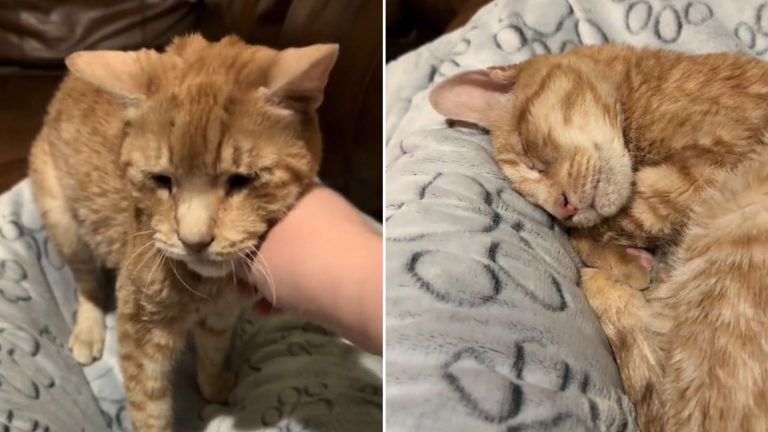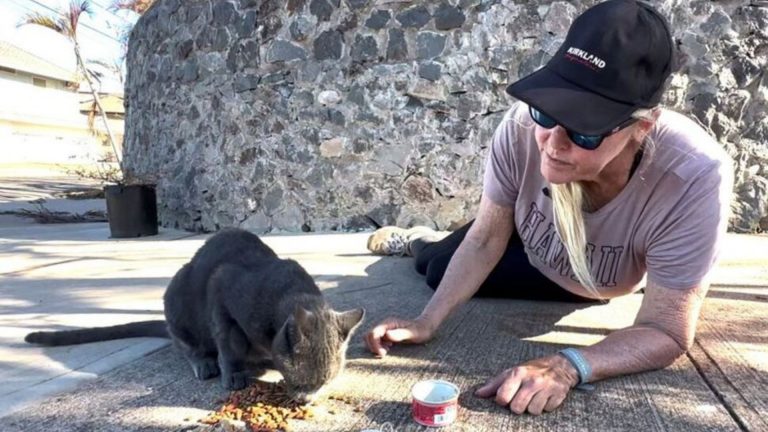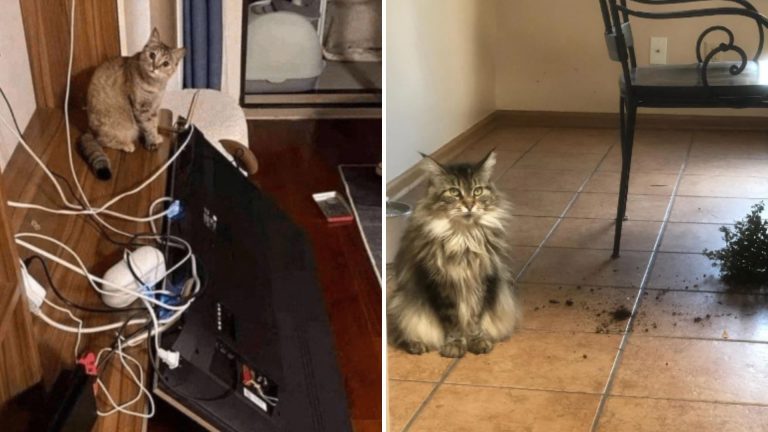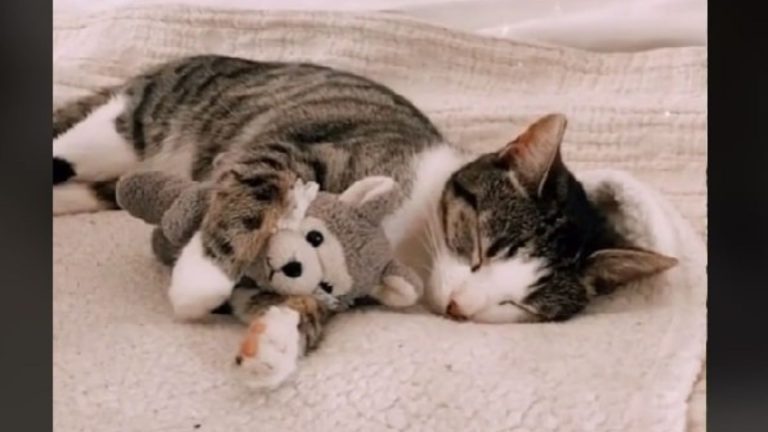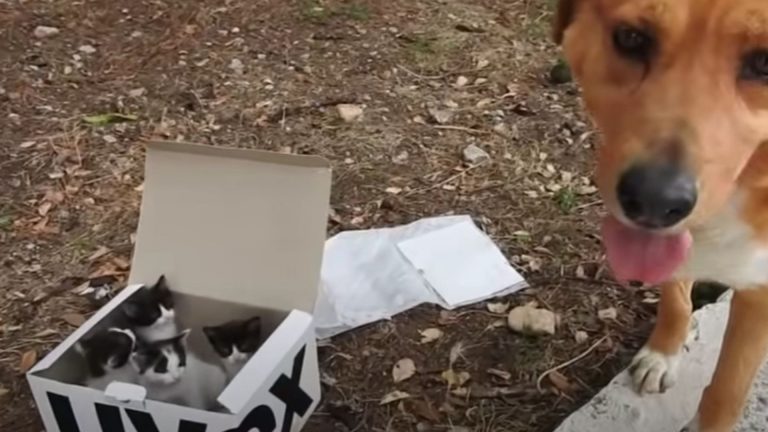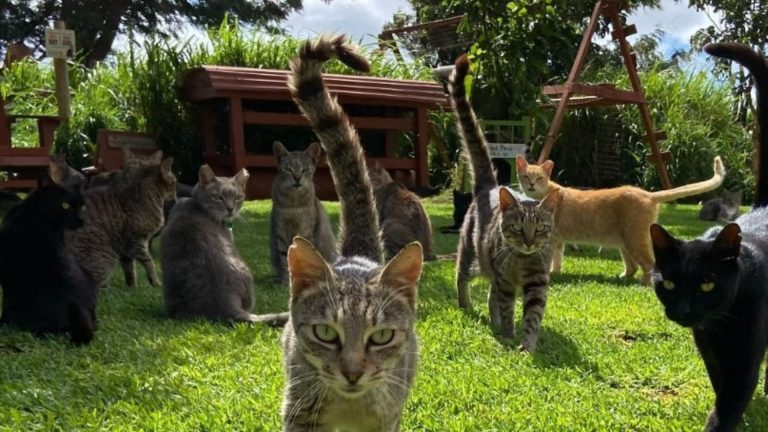Oregon Shelter’s Newest Kitten Leaves Everyone Speechless With An Unbelievable Gender Surprise
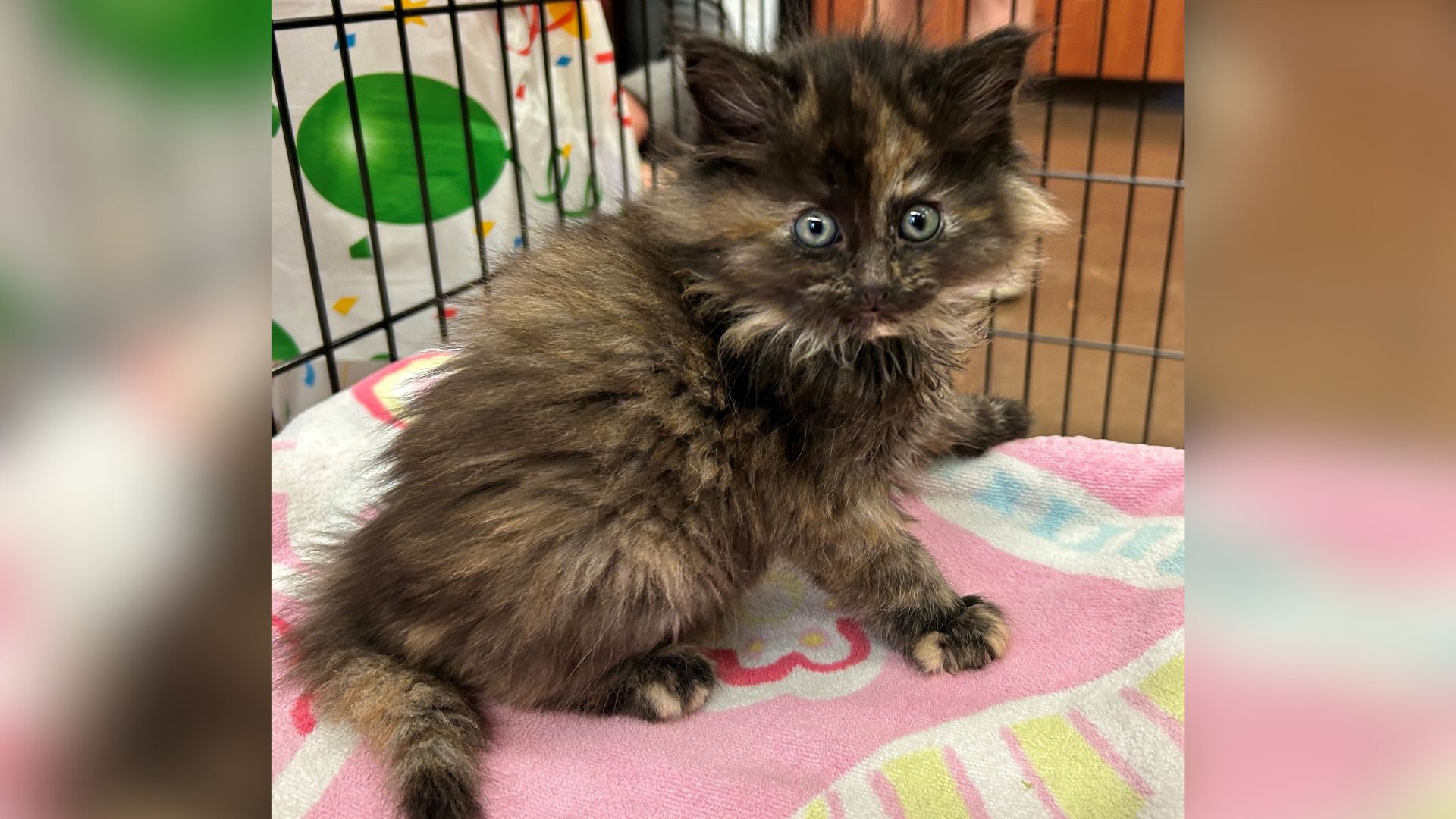
Tortoiseshell cats are unique in many ways. Their name refers to their coat coloration, a combination of black and red colors closely mixed or in larger patches.
These distinct markings make them stand out in any crowd of cats, and their beauty often seems almost otherworldly.
What’s interesting the most is that 99.6% of tortie cats are female, making male torties extremely rare but still possible.
This rarity has earned them a special place in feline lore, with some cultures even considering them to bring good luck or prosperity.
However, when this particular tortoiseshell kitten was dropped off at an Oregon shelter, it managed to shock pretty much everyone – not just because of its dazzling coat but also due to the incredible story that came with it.
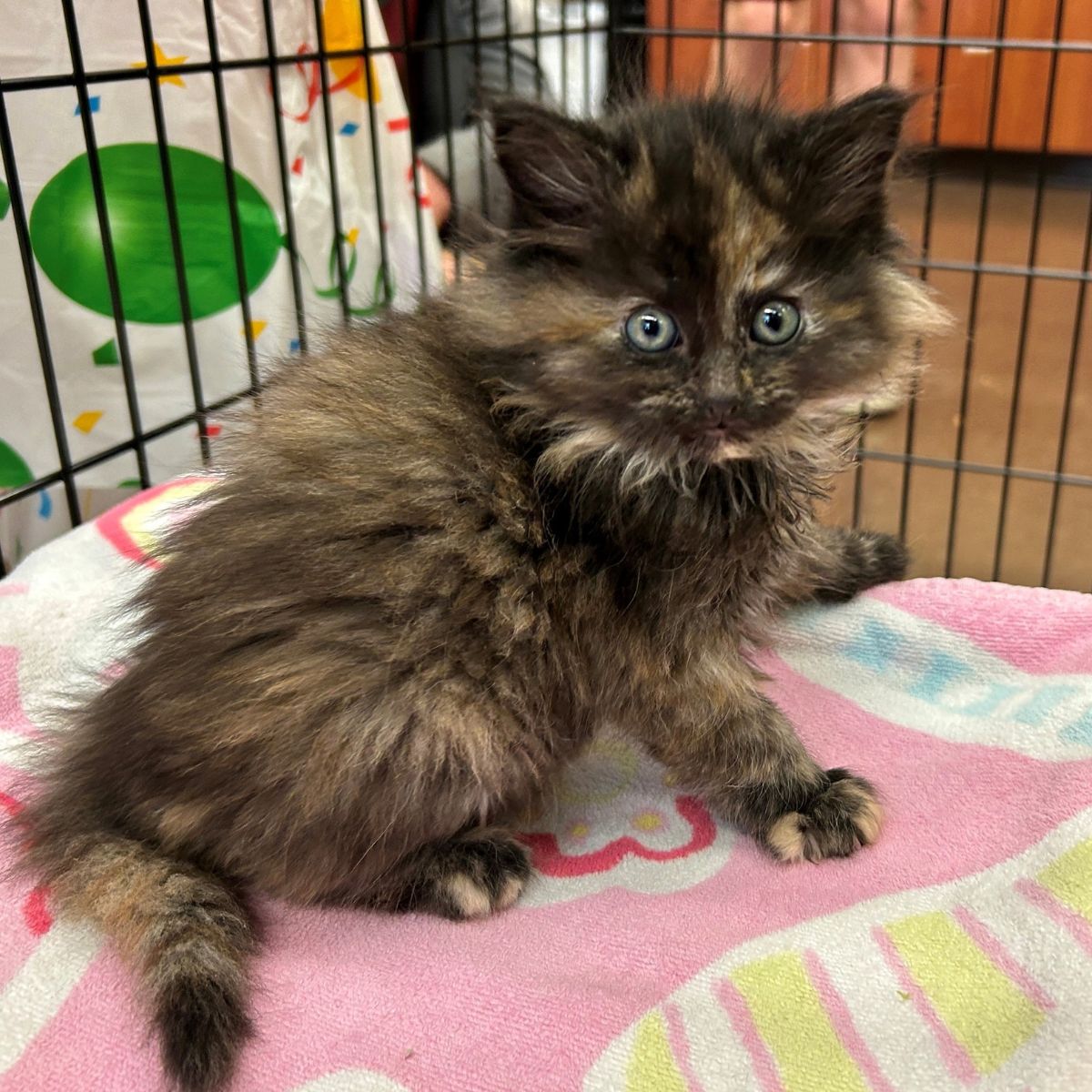
The shelter staff took a tiny tortie kitten under their care and named it Cindy, but after further examination, they made a shocking discovery. Not only was this kitten tortoiseshell, but it was neither a male nor a female.
Such cats are referred to as hermaphrodites and are so rare that the shelter said, “It was like spotting a unicorn!”
This kitten’s case was a highlight in everyone’s career. Initially, they thought the kitten was female, based on its color and external genitalia. However, when they were preparing the kitten for a spay procedure, everyone was left in awe.
The tortie kitten didn’t have a uterus or ovaries. Instead, the vets surgically removed two testicles, renaming the kitten to Cinder. It turned out that Cinder was a hermaphrodite, an organism having both male and female sex organs.
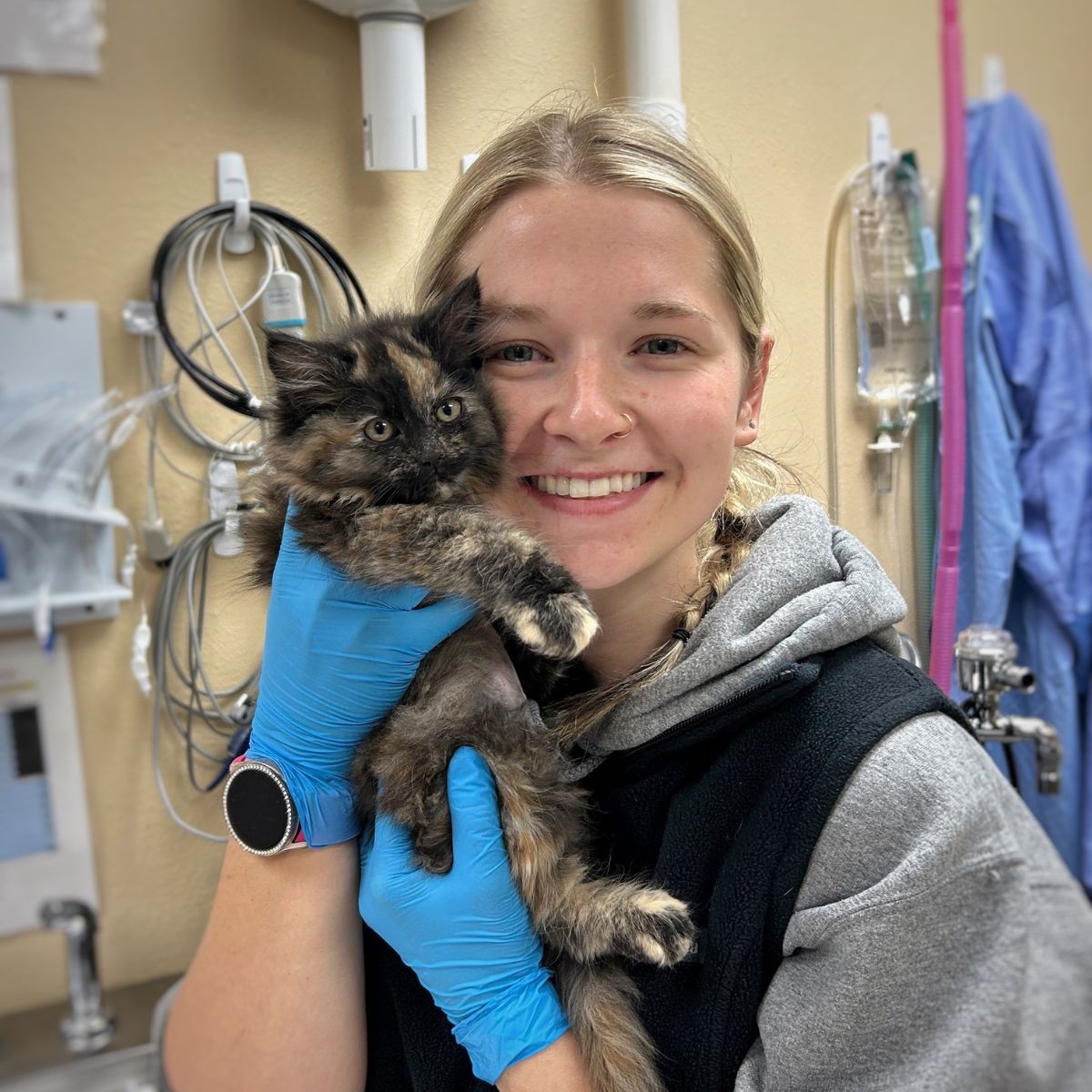
Shocked by this unique creature, the Humane Society of Central Oregon’s Medical Director, Crystal Bloodworth, DVM, said in a Facebook post:
“To call it a male is tough, but with the binary nature of animals and people’s perception of animals, we chose male.”
In such cases, it’s important to know that there can be a lot of variations of hermaphroditism. In Cinder’s case, he’s very like a three-sex chromosome cat, XXY.
The two X chromosomes allow for the tortoiseshell coloring, and the Y allows for testicles. Dr. Bloodworth added:
“In the kitten, it did not have a uterus or ovaries, did have testicles and has what looks like a vulva. If one were to examine Cinder as an adult, they would consider it a female because the external genitalia looks profoundly like a female, not to mention the fact that it is a tortoiseshell cat.”
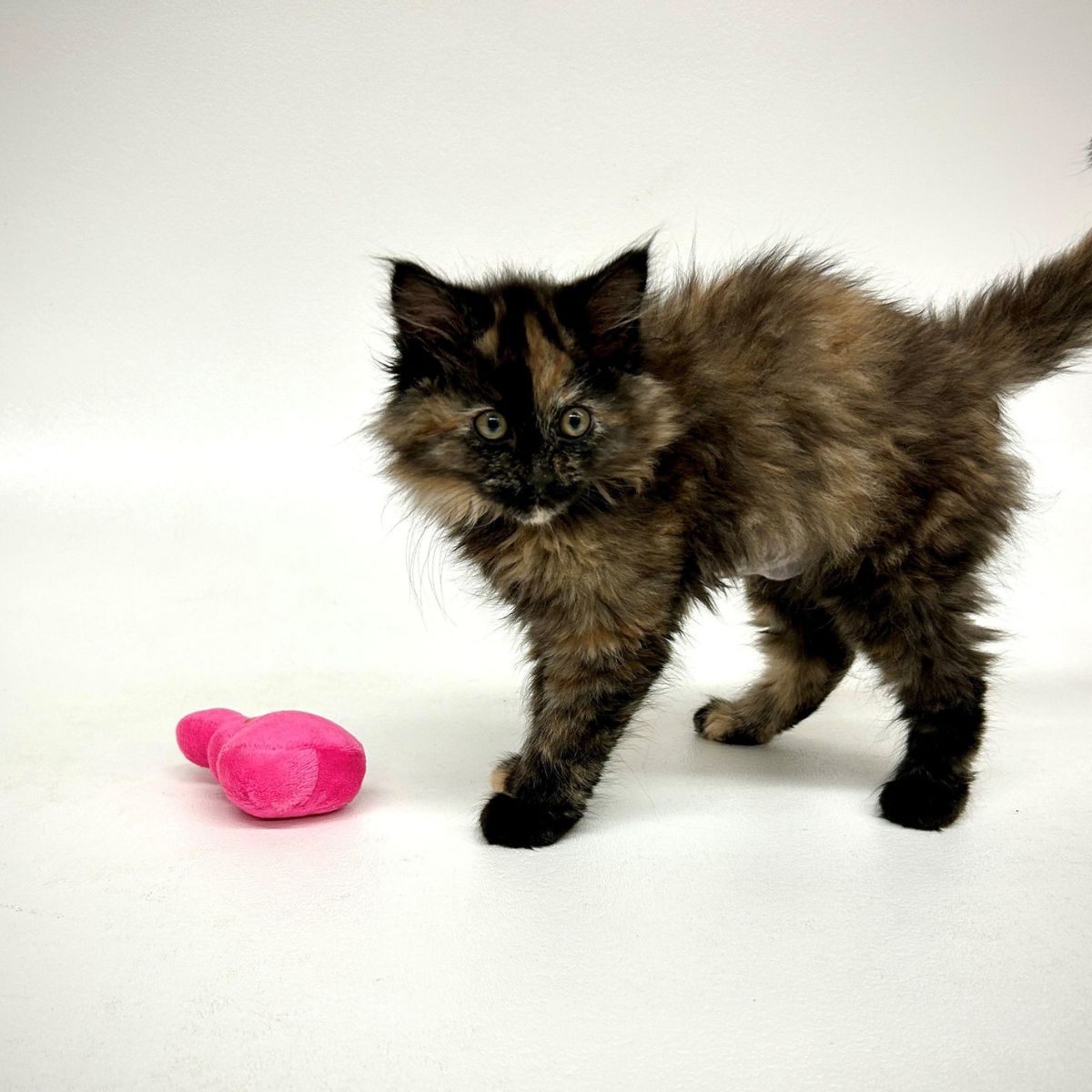
However, Dr. Bloodworth wasn’t the only one shocked by this extremely rare tortie kitten. The Humane Society of Central Oregon’s Clinic Manager, Bailey Shelton, CVT, shared:
“Even though I’ve been only in the veterinary field for nine years, this very well could be a once-in-a-career moment. They always talked about how rare male tortoiseshells are back in school, but seeing one in person is something else. You just never know what amazing surprises await you at the humane society.”
Fortunately, Cinder is lovely and playful just like any other kitten, and there’s no doubt his sex will lower his chances for adoption or finding a loving home.

